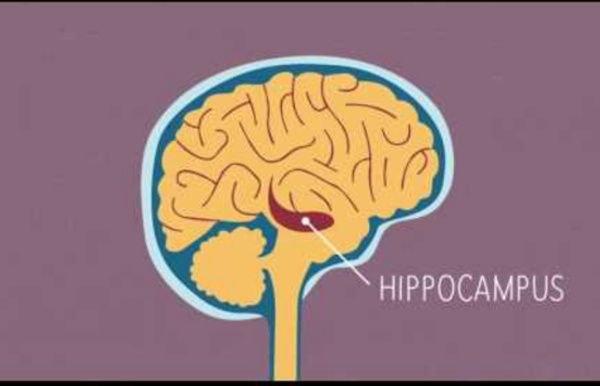



http://www.youtube.com/watch?v=HobxLbPhrMc
Related: Maintaining the cognitive abilities of older adults: How and why should older adults stay active?Mild Cognitive Impairment: Symptoms, Causes, Treatments & Tests What is mild cognitive impairment? Mild cognitive impairment is a condition in which a person experiences a slight – but noticeable – decline in mental abilities (memory and thinking skills) compared with others of the same age. The minor decline in abilities is noticeable by the person experiencing them or by others who interact with the person, but the changes are not severe enough to interfere with normal daily life and activities. Cleveland Clinic is a non-profit academic medical center. Advertising on our site helps support our mission. We do not endorse non-Cleveland Clinic products or services. Vascular Dementia Vascular dementia is a decline in thinking skills caused by conditions that block or reduce blood flow to the brain, depriving brain cells of vital oxygen and nutrients. About vascular dementia Inadequate blood flow can damage and eventually kill cells anywhere in the body. The brain has one of the body's richest networks of blood vessels and is especially vulnerable. In vascular dementia, changes in thinking skills sometimes occur suddenly following strokes that block major brain blood vessels. Thinking problems also may begin as mild changes that worsen gradually as a result of multiple minor strokes or other conditions that affect smaller blood vessels, leading to cumulative damage.
10 Ways to Love Your Brain Growing evidence indicates that people can reduce their risk of cognitive decline by adopting key lifestyle habits. When possible, combine these habits to achieve maximum benefit for the brain and body. Start now. Brain Exercises: 13 Ways to Boost Memory, Focus, and Mental Skills The brain is involved in everything we do and, like any other part of the body, it needs to be cared for too. Exercising the brain to improve memory, focus, or daily functionality is a top priority for many people, especially as they get older. That said, people of all ages can benefit from incorporating a few simple brain exercises into their daily life, which we’ll explore in more detail in this article. Research has shown that there are many ways you can hone your mental sharpness and help your brain stay healthy, no matter what age you are.
What Is Alzheimer's Disease? Alzheimer’s disease is an irreversible, progressive brain disorder that slowly destroys memory and thinking skills and, eventually, the ability to carry out the simplest tasks. In most people with the disease—those with the late-onset type—symptoms first appear in their mid-60s. Early-onset Alzheimer’s occurs between a person’s 30s and mid-60s and is very rare. Forgetfulness — 7 types of normal memory problems It's normal to forget things from time to time, and it's normal to become somewhat more forgetful as you age. But how much forgetfulness is too much? How can you tell whether your memory lapses are normal forgetfulness and within the scope of normal aging or are a symptom of something more serious? Healthy people can experience memory loss or memory distortion at any age. Some of these memory flaws become more pronounced with age, but — unless they are extreme and persistent — they are not considered indicators of Alzheimer's or other memory-impairing illnesses.
Cognitive Skills: Definitions, Examples and How to Improve Them Quick Navigation: In any professional field, you use cognitive skills to solve problems in the workplace and improve the quality of your work. Displaying cognitive skills both in an interview and on your resume can also make you a more appealing job candidate. You develop cognitive skills throughout your life, but strategically improving them can help you better use these abilities in the workplace. In this article, we will define cognitive skills, provide examples and explore how you can improve your own cognitive abilities. What are cognitive skills? What Is Dementia? Dementia is the loss of cognitive functioning—thinking, remembering, and reasoning—and behavioral abilities to such an extent that it interferes with a person's daily life and activities. These functions include memory, language skills, visual perception, problem solving, self-management, and the ability to focus and pay attention. Some people with dementia cannot control their emotions, and their personalities may change. Dementia ranges in severity from the mildest stage, when it is just beginning to affect a person's functioning, to the most severe stage, when the person must depend completely on others for basic activities of living. Signs and symptoms of dementia result when once-healthy neurons (nerve cells) in the brain stop working, lose connections with other brain cells, and die. While everyone loses some neurons as they age, people with dementia experience far greater loss.
11 Great Ways to Improve Your Memory Is it really possible to improve your memory? If you've ever found yourself forgetting where you left your keys or blanking out information on important tests then you have probably wished that your memory was a bit better. Fortunately, there are plenty of things that you can do to help improve your memory.
Physical Activity for Older Adults Significant health benefits are seen in adults aged 65 years and older who participate in regular physical activity. The 2008 Physical Activity Guidelines recommend older adults to incorporate aerobic activity, muscle-strengthening activity, and balance training for older adults at risk for falls. Try to avoid inactivity because some health benefits can occur with any amount of physical activity gain. Older adults need to evaluate their level of fitness before determining their level of effort for physical activity. Chronic conditions need to be taken into consideration since they may affect their ability to do regular physical activity safely. Inactive Older Adults